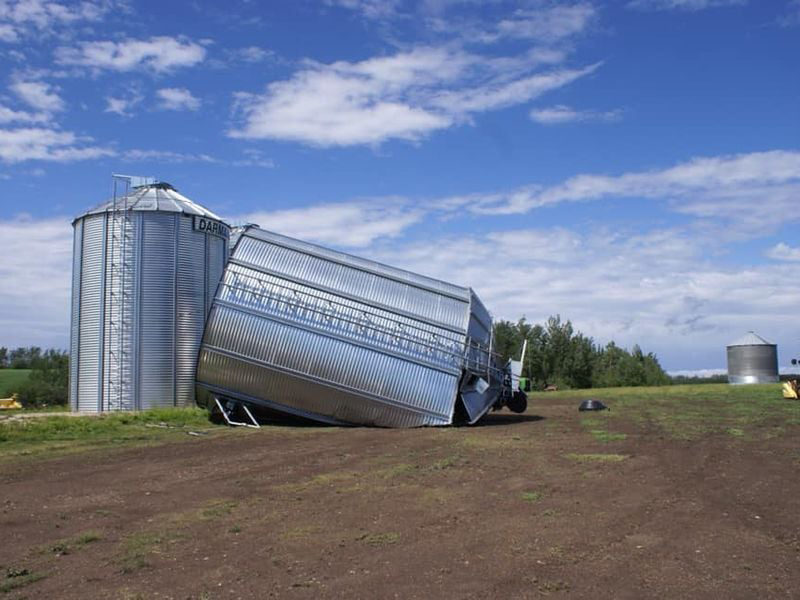The record heat wave that baked many parts of BC last week also created turbulent conditions for crop farmers in the Peace region, where temperatures exceeded 36 degrees Celsius.
The high pressure system unleashed dramatic winds of more than 100 km an hour that swept down from the mountains. By the time the winds reached Rose Prairie, an hour north of Fort St, John, gusts were reaching upwards of 120 km an hour. Several grain bins were destroyed.
The region is mostly home to oat and fescue growers said Malcolm Odermatt, chair of the BC Grain Producers Association, who toured the area and saw the damage for himself.
“The wind went and created a round hole in a steel structure. I don’t understand how wind can do that,” he says. “There was another bin that was still standing that it looked like King Kong had hit it with a baseball bat.”
While some reports have suggested a tornado hit the area, it hasn’t been confirmed. Odermatt said such a phenomenon is unheard of in the area.
The grain bins were not covered by insurance. Since they’re not considered buildings, they require their own policy. Moreover, since they’re generally inexpensive and durable, most farmers don’t insure them. The bins on Odermatt’s own farm at Baldonnel southeast of Fort St. John have been there for 70 years.
“They’re not a huge expense,” he says – unless they have to be replaced all at once.
“When the wind comes and takes down 70% of them, suddenly it’s a massive bill that you have to pay for,” he says, noting that high steel costs mean they’re even more expensive. “It’s going to cost two to three times what it initially did to build to replace them.”
There’s also the chance of delays in receiving new bins, as many fabricators continue to follow protocols designed to fight COVID-19. Structural issues are also affecting supply chains, lengthening delivery times.
Crops in the area had been looking good prior to the windstorm, giving hope to growers who had been hit hard by three years of challenging weather. But without bins, growers will have nowhere to put this year’s harvest.
“The wind didn’t seem to do any harm to the crops,” says Odermatt. “But for those few farmers that did lose the majority of their grain storage, now they have crops and nowhere to store.”
BC Grain Producers Association members are scheduled to gather for their annual general meeting in Dawson Creek on July 15.


 U-pick demand stays steady
U-pick demand stays steady